Uncategorized
-
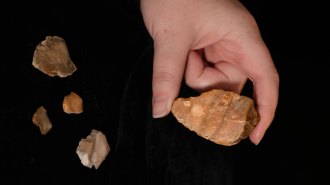 Archaeology
Archaeology7 stone tools might rewrite the timeline of hominid migration in Indonesia
Excavated implements suggest a Homo species arrived on Sulawesi over 1 million years ago, before a nearby island hosted hobbit ancestors.
By Bruce Bower -
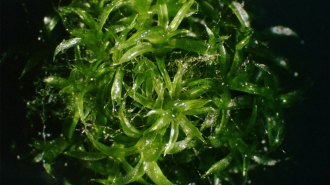 Plants
PlantsA newly discovered gene helped this moss defy gravity
A gene called IBSH1 helped spreading earthmoss thrive at high gravity, hinting at how plants adapted to photosynthesize on land.
- Genetics
This snail may hold a secret to human eye regeneration
Golden apple snails can regrow full, functional eyes. Studying their genes may reveal how to repair human eye injuries.
-
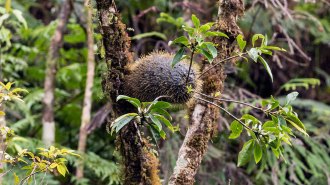 Plants
PlantsThese plants build ant condos that keep warring species apart
The unique architecture of some ball-like plants high in trees in Fiji lets violent ants live peacefully and feed the plant with valuable droppings.
By Susan Milius -
 Artificial Intelligence
Artificial IntelligenceThe U.S. government wants to go ‘all in’ on AI. There are big risks
Government agencies are rapidly adopting AI, but experts warn the push may outpace privacy safeguards and leave data vulnerable to leaks and attacks.
By Ananya -
 Health & Medicine
Health & MedicineWhat is the best exercise to improve sleep?
An analysis of 30 trials delivered a surprising twist: One exercise outperformed walking, resistance training and aerobic exercise in the treatment of sleep disorders such as insomnia.
By Kamal Nahas -
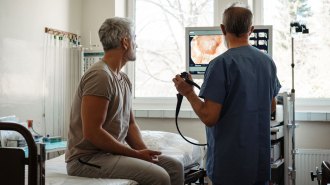 Health & Medicine
Health & MedicineHigher colon cancer rates may reflect earlier screening success
The recommended age for starting colorectal cancer screening is now 45. That shift may explain a rise in early cases.
-
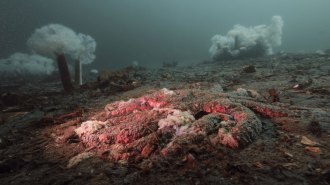 Animals
AnimalsThe mystery of melting sea stars may finally be solved
A bacterium called Vibrio pectenicida may be melting sea stars along North America’s Pacific coast.
- Astronomy
Seven superclouds sit just beyond the solar system
The superclouds probably produce star-forming clouds of gas, since most nearby stellar nurseries are located within the giants.
-
 Health & Medicine
Health & MedicineSome probiotics could feed, rather than fend off, infections
Probiotics containing Lactobacillus gasseri Lg-36 prevented C. difficile infections in mice, but L. acidophilus probiotics made infection more likely.
-
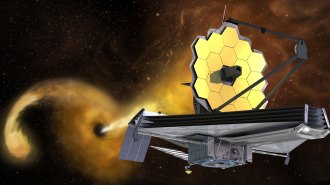 Astronomy
AstronomyThe Webb space telescope spies its first black holes snacking on stars
These star-shredding black holes sit within dusty galaxies that block many telescopes’ views. That’s not an issue for JWST.
-
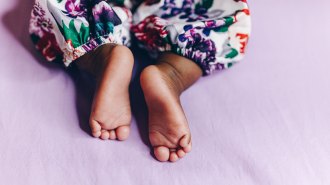 Health & Medicine
Health & MedicineSome U.S. newborns still get HIV despite efforts to screen for it. Here’s why
Routine tests in the third trimester may catch missed cases and flag the need for treatment that reduces a baby‘s risk of getting HIV to near zero.
By Sara Novak